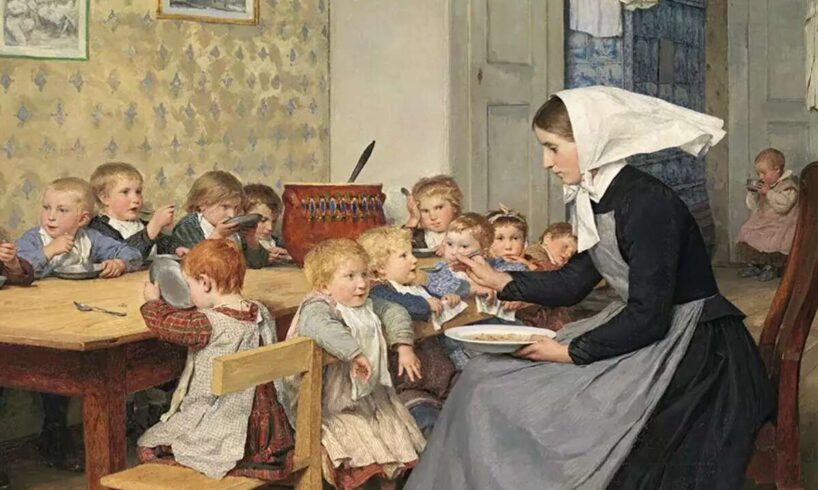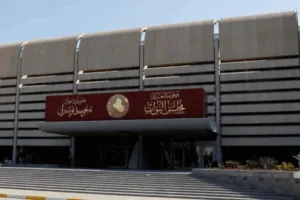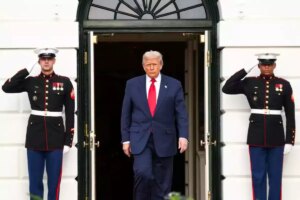
1.
From afar, the quarrels in Israel seem petty. And so, I found myself in Switzerland, where the streets are spotless, the laws strict, and etiquette clear, surrounded by snow-capped peaks and green valleys. My soul, weary for a moment from global turmoil, sought out a special place.
“In Basel I founded the Jewish state,” Theodor Herzl wrote in his diary. At the start of Elul in the Hebrew year 5657, late August 1897, the First Zionist Congress convened, and messianic footsteps echoed among the Jewish people. We are accustomed to calling major events “historic” or even “biblical,” but what happened in Basel that summer truly altered the course of Jewish history forever. Did the participants realize the magnitude of the moment? Reports suggest they were deeply moved, cheering Herzl for hours.
2.
Still, how many among them possessed the perspective of the future? Herzl’s full diary entry shows that he regarded his dream as a foregone reality: “If I were to sum up the Basel Congress in a single phrase, which I shall be careful not to utter publicly, it would be this: In Basel I founded the Jewish state. If I said it today aloud, I would be greeted with universal laughter. Perhaps in five years, and certainly in fifty, everyone will see it.” For Herzl, the future was already laid bare before him, just as it indeed unfolded. It was as if God spoke through him, fulfilling the prophecy of Joel: “And it shall come to pass afterward that I will pour out My spirit upon all flesh; and your sons and your daughters shall prophesy, your old men shall dream dreams, your young men shall see visions.”
3.
We arrived in the afternoon, the sun beginning to set, but within me, dawn broke. I stood before the Hotel Drei Könige at 8 Blumenrain Street, overwhelmed by the weight of history. Here Herzl stayed, and from his balcony, the famous photograph was taken of him gazing over the Rhine. The “three kings” were the magi, Persian priests, who according to the New Testament brought gifts to the infant destined to be King of the Jews. History has its own irony: the man who stayed in that hotel room received shouts of “Long live the king” from the congress attendees, and when he died, Rabbi Abraham Isaac Kook eulogized him as one touched by the light of the Messiah son of Joseph.
I thought of the courage it took to organize such an event. It could easily have collapsed into failure, burying the Zionist movement before it was even born. A week before the congress, Herzl confided his doubts in his diary: “The truth is, and I conceal it from all, that I have at my disposal only an army of beggars. I am nothing but the leader of youths, paupers, and paltry journalists. Some exploit me entirely. Others already envy me… There are only a few enthusiasts who do not seek their own benefit. Still, should success smile upon us, this ragtag army may suffice and quickly transform into a strong, orderly force. Let us see what the coming days bring.”
Not all Jews shared Herzl’s messianic aspirations. The German Jewish community opposed holding the congress in Munich. Zionism cast suspicion on their loyalty to Germany, since it claimed the Jewish homeland was in the Land of Israel. Jewish nationalism clashed with their desire to integrate into German society, as they defined themselves “Germans of the Mosaic faith.” Despite the deep hostility between Reform and Orthodox movements, both joined forces in rejecting Zionism. A month before the congress, the Berlin Rabbinical Association declared, “The aspirations of the Zionists run counter to the messianic hopes of Judaism.” One rabbi in Munich demanded a public declaration that “our religion has nothing to do with nationalism.”
4.
At the end of the public debate, Herzl decided to convene the congress in Basel. He moved it to the city’s casino hall, which was more prestigious than the initially planned venue. A blue-and-white flag adorned with a Star of David hung at the entrance. David Wolffsohn later explained that the design was inspired by the tallit. The delegates’ card bore an image of a farmer sowing a field whose furrows stretched toward the Western Wall, and their badges bore the words in German: “The only solution to the Jewish question is the establishment of a Jewish state.”
Herzl wrote: “Out of respect for religion, I went on the Shabbat before the congress to the synagogue. The head of the community called me up to the Torah… When I ascended the bimah I was more moved than at any moment of the congress. The few Hebrew words of the blessing choked my throat with emotion more than my opening address, closing address, or the entire management of the debates.”
5.
I checked the calendar for that year, 5657. On that Shabbat, they read the portion of Re’eh, and in its opening verses, Herzl heard the summary of the congress: “And it shall be, when the Lord your God brings you into the land you are entering to possess… For you are about to cross the Jordan to go in and take possession of the land the Lord your God is giving you, and you will possess it and dwell in it” (Deuteronomy 11:29-31).
This time, the Israelites had to cross not only the Jordan but entire oceans, and leap across nearly two millennia in which we forgot what homeland and statehood meant, and how to inherit and inhabit them. In the prophetic reading, Herzl heard Isaiah’s consolation: “Afflicted city, lashed by storms and not comforted, I will rebuild you with stones of turquoise, your foundations with sapphires. I will make your battlements of rubies, your gates of sparkling jewels, and all your walls of precious stones” (Isaiah 54:11-12).
With the perspective of years, he knew that this congress would be the consolation of a people battered and broken by such a long exile. It is understandable why, in his opening speech, Herzl declared: “Zionism is our return to Judaism even before our return to the land of the Jews.”
6.
Later, I went to the city’s casino hall, a magnificent cultural venue. The historic building still stands. On its steps, teenagers sat drinking and smoking, unaware that this place once served as the womb where the Jewish state was conceived and Herzl’s vision took shape. At the turn of the century, a turning point in Jewish history was forged here, sending us back to Zion and eventually bringing about the State of Israel. Often, a person seems trapped in a dead-end path, with no purpose in sight, not knowing that his redemption awaits just around the corner. Thinking of the past two difficult years, and the harsh one before them, we can find hope in the good that surely lies ahead.
“Salvation may come from anywhere,” our sages taught in the Talmud. There were 208 delegates at the first congress. At that moment, the vast majority of the Jewish people did not join the celebration; few thought of the Land of Israel, and most Eastern European Jews immigrated to the US when they could. Yet, those few dreamers forged the decisive shift in our history. The land that lay barren for two thousand years blossomed into a flourishing paradise and a regional power, just as Isaiah promised (this Shabbai in the Haftara): “Sing, barren woman, you who never bore a child… Enlarge the place of your tent… For you will spread out to the right and to the left; your descendants will dispossess nations and settle in their desolate cities.” With our own eyes, we have seen it (Isaiah 54:1-3).





